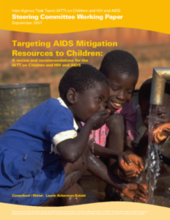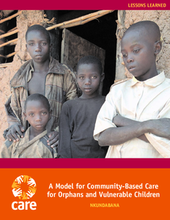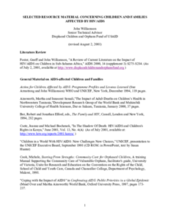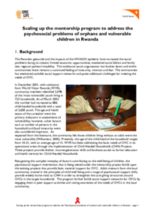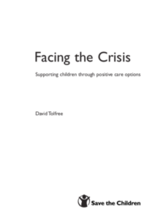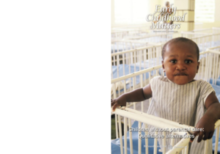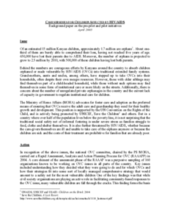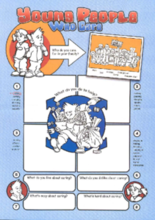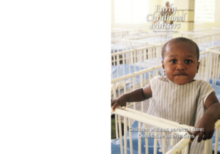Displaying 71 - 80 of 87
Evaluates AIDS mitigation and targeting with child sensitive objectives and global guidance
This document presents the full policy on the alternative care of children in Cambodia.
A lessons learned document reviewing impacts of a community-based care and mentoring program for child-headed households in Rwanda.
An updated list of literature and bibliographies concerning children and families affected by HIV/AIDS around the world. Most of the resources are focused on sub-Saharan Africa.
Outlines the results of World Vision Rwanda’s mentorship program for children in child-headed households and other OVC. Includes challenges and lessons learned.
A paper with guidelines for keeping children with families and providing proper care and protection for them. It provides examples and plans for those interested in planning care for separated children.
Collection of articles highlighting suggestions on how to improve existing mechanisms for providing adequate care. Major article on the current state of international thinking on children without parental care.
Outlines the impact of a pre-pilot conditional cash transfer scheme implemented in Kenya and defines key issues to be considered before moving forward into pilot and national schemes. Short annexes include tools/frameworks to guide implementation.
A child friendly assessment form for children/young people who are caregivers. The assessment helps them to identify what support services they may need.
This is an issue of the Early Childhood Matters journal. Topics include community based care, out of home care, institutional care, mothers in prison, child-headed households, and other issues from around the world

